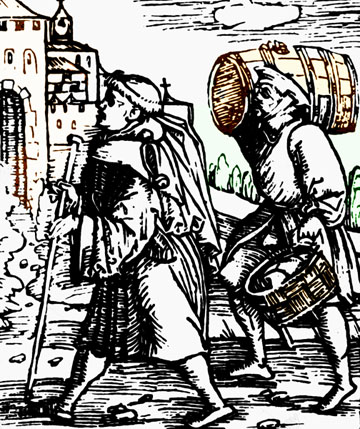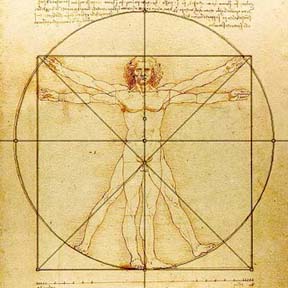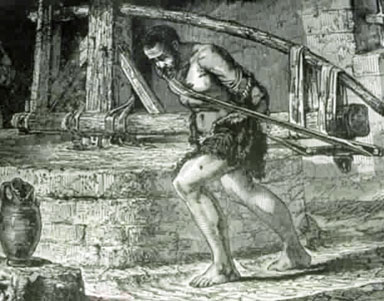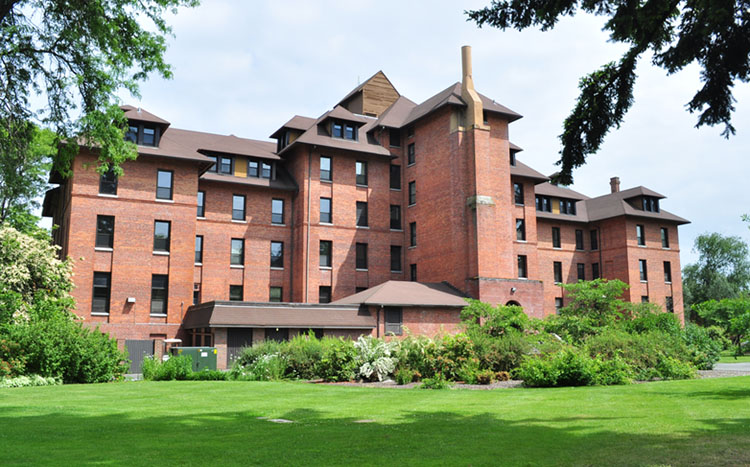October 2020
|
Bow Down Before God
We have trouble with God. What shall we make of his
invisibility, eternality, and the vast reaches of his power (1
Timothy 6:16)? His nature is hard to fathom. And we have so
little experience of him – our range of perception is dominated
by things and human quirks with nothing divine to speak of (John
12:29). And then there is all the destruction attributed to him
(Luke 13:3) – that Flood for starters (Genesis 7:23), along with
wars, famines, and diseases (Ezekiel 14:21). Why does he allow
for all of this misery to afflict us? Finally, we even stumble
over his love, which while wonderful, is distributed so unevenly
throughout the world (1 John 4:16, Mark 1:39). Why does he heal
just some cancer patients?
In Martin Luther’s greatest book,
The Bondage of the Will
(1525), he tried to put an end to our questioning. Stop
imagining “the Living God,” he wrote, “to be nothing but
a kind of shallow and ignorant ranter declaiming from
some platform, whose words you can if you wish interpret
in any direction you like” (Luther’s
Works
33:60). Bow down before him instead (Psalm 99:5,
Ephesians 3:14). That’s how your questions will fade
away. And that’s how the church will begin its
reformation on Sunday, October 25 – by bowing down
before God.
—Pastor
Marshall |
|
PRESIDENT'S REPORT....
by Cary Natiello
Last month I reported that we continued on solid financial
footing.
Our
year-to-date envelope
giving through July was about $156,000 against a budget target
of about $135,600 (a $21,000 surplus).
We were exceeding our budgeted weekly envelope giving
target by about $700 week.
However, in August our envelope giving dropped.
In
August, our envelope giving was a total of $16,500 against a
budget of $22,600.
In August our envelope giving was an average of only $3,300 week
(note: there were 5 Sundays in August).
Unfortunately, at the time of writing this report, September
giving continued the downward trend.
The average giving for the first two weeks in September
was also about $3,300 week (adjusted).
If this lower level of average weekly giving were to continue
throughout the remaining Sundays in this calendar year, we would
end the year slightly below our envelope giving target for the
full year.
Through August we were
about $14,500 ahead of target, but with the last seven Sundays
averaging well below our average weekly giving through July,
David King, our treasurer, projects that if this recent pattern
of giving continues through the end of year we'd run about
$19,000 below our target giving for the last 15 weeks of the
year, ending the year slightly below our giving target for the
full year. If this
scenario were to occur, we could be looking at potential cuts to
the 2021 budget in light of the changed giving pattern.
During these unprecedented times it may be difficult to continue
to support our church at our usual giving level.
So much uncertainty, chaos, and dismay is turning our
world upside down.
It seems like things are not getting better, but instead, only
worse. I share the
information above with the intent of keeping our congregation
informed. I know we
all are doing our part to maintain our church for when we can
open our doors again.
Thank you for your continued support of our staff and
maintaining our beautiful church.
At the last council meeting we discussed our five criteria for
resuming in-person worship services.
The consensus of the council was that there continues to
be too much uncertainty if COVID-19 is coming under control,
especially with so many (especially students) ignoring safety
protocols. We do
feel that the CDC and local health officials are coming to
consensus on what precautionary measures need to be taken for
when we resume in-person worship services so the council will
resume work on establishing and refining our reopening
guidelines.
Please remember to return your pledge cards by NOVEMBER
6, 2020.
The church council will begin looking at our 2021 budget soon.
Our 2020 giving will play a large part of setting that
budget. Also, our
congregations’ pledge card giving tally will be helpful in
setting our 2021 budget.
|
|
STEWARDSHIP
Living for Others
“As
you, Lord, have lived for others, so may we for others live.
Freely have your gifts been granted; freely may your
servants give.
Yours the gold and yours the silver, yours the wealth of land
and sea; we but stewards of your bounty held in solemn trust
will be.” –Verse 2, Son of God, Eternal Savior, LBW 364 The hymn Son of God, Eternal Savior is always
both simultaneously challenging and inspiring.
The third stanza, “Yours
the gold and yours the silver, yours the wealth of land and sea”
is a challenging reminder that while we think we are in control
of, owners of, and creators of our own wealth, that thinking is
wrong – God is the creator of our wealth, which He freely gives
to us. This is
particularly challenging in our current time in the midst of the
COVID-19 global pandemic.
Not only have we been vividly reminded that we are not in
control of our own health, we’re also reminded that we’re not in
control of our own ability to generate an income and create
wealth. Admitting
our own lack of control is not an easy task, but we are called
in the hymn to do just that, which is further echoed in Psalm
24: “The earth is the
Lord’s and all that is in it, the world and those who live in
it; for he has founded it on the seas, and established it on the
rivers.” –Psalm 24:1-2, NRSV The final stanza of the hymn further
instructs us what we are to do with the wealth that God has
blessed us with, and what our role is with regard to our money
and property – “we but
stewards of your bounty held in solemn trust will be.”
God gives us money and wealth as his bounty, that we
would be stewards over it, and that we would hold and use it in
trust for God’s purposes in the world. As you think about your giving to the church and to extended ministries and other charities, think about the words of this wonderful hymn that both challenges us and our conception of where our wealth comes from and who creates it, and tells us that as stewards of the gifts God gives us, we should use those gifts to glorify Him, further His purposes on earth, and not waste the freely given gifts of God on things not worthy of the great gift He daily gives to us. ‒David
King, Church Council |
|
The Body
“I am fearfully and wonderfully
made.”
(Psalm 139:14)
“You
don’t know how the body is formed in the mother’s womb.”
(Ecclesiastes 11:5)
The Tongue
“The tongue is
a muscle, but quite unlike any other. For one thing, it is
exquisitely sensitive – think how adroitly you pick out
something in your food that shouldn’t be there, like a tiny
piece of eggshell or grain of sand – and intimately involved in
vital activities like speech articulation and tasting food. When
you eat, the tongue darts about like a nervous host at a
cocktail party, checking the taste and shape of every morel in
preparation for dispatching it onwards to the gullet…. [The
taste buds on the tongue] are among the most regenerative of all
cells in the body and are replaced every ten days…. We have
about ten thousand taste buds, most distributed around the
tongue, except in the very middle, where there are none at all….
Taste receptors have also been found in the heart, the lungs,
and even the testicles. No one knows quite what they are doing
there…. It is generally supposed that taste receptors… help us
find energy-rich foods (like sweet, ripe fruits) and to avoid
dangerous ones. But it must also be said that they don’t always
fulfill either role terribly well…. We have about ten thousand
taste receptors, but we actually have more pain and other
somatosensory receptors than taste receptors in our mouths.
Because they exist side by side on the tongue, we sometimes mix
them up…. Incidentally, we have pain detectors not only in the
mouth but also in the eyes, anus, and vagina, which is why spicy
foods can cause discomfort there…. It is nearly always wrong to
talk about how food tastes, though of course we all do. What we
appreciate when we eat is flavor, which is taste plus smell.
Smell is said to account for at least 70 percent of flavor, and
maybe even as much as 90 percent.”
[Bill Bryson,
The Body: A Guide to
Occupants (2019) pp. 101, 102, 103, 105, 106.] |
|
Luther on Samson
By Pastor Marshall
The blinded and defeated Samson is punished
by his enemies, the Philistines, to grind at the millstone in
prison (Judge 16.21). Luther calls this punishment “slavery” (Luther’s
Works 17:147). This servile low point is required before
Samson is able to serve God once again with great glory and
might. But for now it is startling – “overnight a man with the
highest conceivable calling, the divinely commissioned agent of
deliverance for Israel, is cast down to the lowest position
imaginable: grinding flour for others in prison” (Trent C.
Butler, Judges, 2009,
p. 352). Against this devastation Luther admonishes – “rouse
yourself. Do not give in to evil, but go forth more boldly
against them. Hold on. Do not be disheartened either by contempt
or ingratitude within or by agitation and raging without…. We
should not be discouraged when we look at present circumstances
that disturb us, but we should much rather look at [God’s]
promises…. He is the kind of king who will have success,
steadfastness, and victory – if not in this place and time, then
at another time and place” (LW
12:220–21). And so the Christian alone is able to say – “I am a
reproach to all; I am not. I am poor; I am not” (LW
16:307). How about
that? |
|
The Identity Crisis in
Lutheran Higher Education
by Jane L. Harty
Lutheran Higher Education (LHE) is going through a “KFC phase.”
What used to be Kentucky Fried Chicken (and was really good
southern-fried chicken decades ago!) had to have its name
legally changed to “KFC” because the chicken had been too
genetically altered to call it “chicken” anymore (credit to the
Rev. Philip Nesvig for this apt metaphor). This is based on my
observation of the Lutheran church, which has become
increasingly balkanized into various synods and off-shoots.
Those divisions have trickled down into Lutheran universities
and colleges including Pacific Lutheran University (PLU) where I
served as faculty for over 40 years. Faculty there are widely
divergent in their visions of LHE. I would not say that LHE has
completely lost its identity, rather that its identity has been
marginalized by the Lutheran church and the church affiliated
universities themselves.
I asked the question “where’s the chicken? “at a PLU
faculty seminar a few months before I was terminated in 2019. It
was made clear at our seminar that study of the Bible, as Luther
himself held up, as well as the Lutheran Confessions, was indeed
being taught at PLU, in addition to the long-treasured fields of
study that mark a strong liberal arts education. What was not
clear was how
Lutheran doctrine from the 16th century continues to be
taught—is it only critically evaluated, or is it also supportive
of our Lutheran theological heritage? If the teaching is only
critical of Lutheranism, that would reflect the deep malaise in
the Lutheran church today. If its identity as a Lutheran
university holds up the highly valued principle of academic
freedom, then it must at least offer (not necessarily require)
the full range and history of Lutheran teachings without bias.
In my own field of Music, a biased parallel would be offering
the study of the music of Bach, but only in order to criticize
it in comparison to new music of the modern era. It was not
clear to me from our seminar that we, as a faculty, honor that
Lutheran heritage, and indeed there were even questions about
what it actually is. However, there did seem to be curiosity
about it!
Our faculty seminar left me with the understanding that PLU
faculty were not willing to include
both the Lutheran
canon (from the 16th century)
as well as new
interpretations of Lutheranism, allowing students to learn the
full history and range of the tradition and find for themselves
what is meaningful to them. For me the Lutheran canon would
include exploration of the historical documents: the Lutheran
Confessions, the historical heresies determined by the larger
Church and also condemned by Luther, as well as the
controversial writings by Luther, whom Lutherans have recognized
as “our most eminent teacher” (The
Book of Concord, ed. Tappert, 1959, p. 576). (For new views
of Lutheranism, see Stand
Boldly: Lutheran Theology Faces the Postmodern World, ed.
Eric Trozzo, 2009; and
Engaging Luther: A (New) Theological Assessment, ed. Olli-Pekka
Vainio, 2010.)
In the faculty seminar we touched on Luther’s criticism of
Judaism (was it anti-Semitic or anti-Judaism?); the Peasant’s
Rebellion (was it authoritarian or critical only of armed
insurrection?); and his writings on women, marriage and family
(was he opposed to or supportive of the leadership of women,
both inside and outside of the home?). What I observed was
resistance to examining these controversies, and a quick jump to
dismissal of 16th century thought as being irrelevant,
patriarchal, and racist. What it said to me was that faculty in
Lutheran higher education may well be afraid of our history,
only including it to the extent that students have limited
exposure to it, denying them the training of their own critical
learning skills. It is fraught with the problem of academic
repression.
Sydney Ahlstrom’s essay, “What’s Lutheran about Higher
Education? – A Critique” (What’s
Lutheran About High Education? ed. Robert L. Anderson,
1974), has been most helpful to me, and I thank the faculty
seminar leaders for including it. The focus of our discussion
was on Luther’s “remarkable openness to the investigative
spirit” (Ahlstrom) and his emphasis on
Critical Thinking.
This was brought up in the shocking context of Luther’s own
disdain for the universities because they did not teach
Christian doctrine (Luther’s
Works 44:207), and the widespread consensus that he would
never be hired in a modern university because his hierarchical
approach was too Catholic (Heiko A. Oberman,
Luther: Man Between God
and the Devil, 1989, pp. 313–14). Ahlstrom’s essay begins
with a discussion of the three major currents in LHE, the third
being Critical Thinking. We did not discuss the first two: the
Scholastic or Orthodox current, and the Pietistic. The faculty
seminar leaders were not interested – which questions the
genuineness of their intellectual curiosity.
The Scholastic or
Orthodox tradition arose in the confessional debates of the
16th century and rested on a return to and confidence in two
sources: the Biblical text and Aristotelian metaphysics. What is
deeply significant here is Luther’s return to primary sources in
order to both clarify doctrine and to translate those sources so
that people could understand them (LW
40:241, 43:281). This was his life’s work as an academic, and
that scholarship has rarely been matched in human history. It is
one of the reasons why he was considered at the dawn of the 3rd
millennium as one of the five greatest thinkers (and only
theologian) over the last thousand years. That huge body of
academic work cannot be overlooked or simply moved into storage
in a very large library archive, especially at our Lutheran
colleges and universities!
The Pietistic
tradition – the other strain left out in the seminar I attended
– emphasized the
inner life of the Christian soul, and was not focused on doing
good works (LW
22:197, 30:159, 245, 268, 79:233). Since it is necessarily
subjective, this current of Lutheranism has been in a continual
battle with rationalism and the Enlightenment in which Luther
himself was embroiled. His emphasis on the individual soul’s
life with God stands at the center of his thought and his deep
and abiding care for humanity, in spite of his sometimes rude
and outspoken character.
I was grateful for the opportunity to participate in this LHE
faculty seminar at PLU and to interface with colleagues from
other areas of study about the significance of Lutheran higher
education. It was clear that we had different points-of-view
about what that meant. The Lutheran value of critical inquiry,
as well as the widely held principle of academic freedom was at
stake here. I hope that our students will finally be allowed
into, and encouraged to take up, this debate, rather than being
confined to only a 21st century “fake chicken” point-of-view of
Lutheranism.
Dr. Harty joined First Lutheran Church of West Seattle in 1979.
She sings in the choir and currently serves on the Church
Council and as an Assisting Minister. She and Pastor Marshall
celebrated their forty-eighth wedding anniversary on August 1,
2020. |
|
Reformation Sunday
Sunday, October 25, 2020
Online worship -
www.flcws.org
HOME COMMUNION:
Are you interested in distributing Holy Communion in your
home? If so, please
call 206-935-6530 or email Pastor Marshall
deogloria@foxinternet.com to make arrangements.
If you make the arrangements you can pick your communion
packet up from church on Saturday’s from 10:00 am to 2:00 pm, or
Pastor Marshall can deliver communion to your home.
tHURSday Evening Bible Class
is being offered 7:30-9:30 pm, via ZOOM online.
If you are interested in joining this class email Pastor
Marshall at deogloria@foxinternet.com and he will send you a
link.
.
“WITH THE MIND” book club
(A
Children’s Bible: A Novel
(2020) by Lydia Millet
) is planned for Sunday, October 25th, at 3:30 pm.
|
|
Philippians
The Apostle Saint Paul
“Being found in human form, Christ Jesus
humbled himself and became obedient
unto death, even death on a cross.”
(2:8)
by Pastor Marshall
According to
Luther, this verse shows that Christ allowed himself to be
“scourged, crucified, and killed,” in order to make it look like
there was “no greatness, no power, no majesty there.” That’s
because in the “realm of faith He wants to be small” (Luther’s Works 57:35, 36). But that smallness is “only a transition,
the way and means through which [Christ comes] to the Father.”
Then “Christ will no longer be small, but will become as great
and all-powerful as [the Father] is and will rule and reign with
Him eternally” (LW
77:360). When we believe
this about Jesus, then his crucifixion saves us. But, Luther
goes on to say, Jesus “certainly did not do all of that because
we were worthy of it or had deserved it, for who could be worthy
of such service from such a person? Rather, He did all of that
because He was obedient to the Father. [This] opens up heaven…
and makes room for us to see the abundance of the divine majesty
and to gaze on the inexpressibly gracious will and love of the
Father’s heart toward us, so that we would feel that God from
eternity has been pleased with what Christ… would do and now has
done for us. Whose heart does not melt for joy at this?” (LW
76:422). Luther thought that in order for our hearts to melt, we
should carefully consider the price Christ paid in his suffering
and death, for when we do, then all of our works and merits, we
would “curse, defile, spit upon, and damn.” For indeed, we
cannot “placate God” with our efforts, for “He cannot be
placated except by this immense, infinite price, the death and
the blood of the Son of God, one drop of which is more precious
than all creation” (LW
26:175–76). But some think
Luther is wrong about placating God. They argue that God “does
not need to be appeased in order to be made merciful. He is
already merciful…. [Therefore it is a] misguided idea that God
must first satisfy his wrath before he can exercise his mercy
[since it] has no basis in Holy Scripture” (George Hunsinger,
Philippians, 2020, p. 186). Luther disagrees however. God’s wrath is
“no joke” he argues (LW
28:264). If it isn’t settled, it will go on raging against us –
as in Matthew 21:41, Luke 13:3, and Romans 2:5. Only the cross
saves us from the wrath of God (Romans 5:9). God punishes Christ
for the sin we’ve committed – instead of us. Only by nailing
those sins to the cross are they canceled out (Colossians 2:14).
For Luther “God cannot and will not look kindly on sin, but His
wrath remains over sin eternally and irrevocably. For this
reason, a payment must take place which would make restitution
for sin, take God’s wrath upon itself, make satisfaction, and
pay, and thus take away and cancel sin” (LW 57:283). “Why else did he die, except to pay for our sins and to
purchase grace for us so that we might despair of ourselves and
our works, placing no trust in them, so that we might, with
courageous defiance, look only to Christ, and firmly believe
that he is the man whom God beholds in our stead and for the
sake of his sole merits forgives us our sins, deigns to look
upon us with favor, and grants us eternal life. That is the
Christian faith” (LW
52:253, 76:164).
This passage “stands in the church’s Scriptures…. as a judgment
upon the kind of triumphalism that abandons the path of service
and obedience” (Fred Craddock,
Philippians, 1985, p.
43). Thank God that it has been so heavily used “at church
services over the centuries…. What the Philippians wrote to
proclaim Christ in their Roman world has continued to shape
preaching, hymnody, Christology, and Christian life” (John
Reumann, Philippians,
2008, p. 377). |
|
Monthly Home Bible Study,
October 2020, Number 332
The Reverend Ronald F. Marshall
Along with our other regular study of Scripture, let us join as
a congregation in this home study. We will
study alone then talk
informally about the assigned verses together as we have
opportunity. In this way we can “gather
together around the
Word” even though physically we will not be getting together
(Acts 13.44). (This study uses the RSV translation.)
We need to support each other in this difficult project. In 1851
Kierkegaard wrote that the Bible is “an extremely dangerous
book.... [because] it is an imperious book... – it takes the
whole man and may suddenly and radically change... life on a
prodigious scale” (For
Self-Examination). And in 1967 Thomas Merton wrote that “we
all instinctively know that it is dangerous to become involved
in the Bible” (Opening
the Bible). Indeed this word “kills” us (Hosea 6.5) because
we are “a rebellious people” (Isaiah 30.9)! As Lutherans,
however, we are still to “abide in the womb of the Word” (Luther's
Works 17.93) by constantly “ruminating on the Word” (LW
30.219) so that we may “become like the Word” (LW
29.155) by thinking “in the way Scripture does” (LW
25.261). Before you study then, pray: “Blessed Lord, who caused
all Holy Scriptures to be written for our learning: Grant us so
to hear them, read, mark, learn and inwardly digest them, that
we may embrace and ever hold fast the blessed hope of
everlasting life, which you have given us in Our Savior Jesus
Christ. Amen” (quoted in R. F. Marshall,
Making A New World: How
Lutherans Read the Bible, 2003, p. 12). And don’t give up,
for as Luther said, we “have in Scripture enough to study for
all eternity” (LW
75:422)!
Week I.
Read Psalm 50.12 noting
the line I would not tell
you. Why is that? On this read Acts 17.25 noting the words
needed,
gives and
everything. Do you
then believe that God needs nothing from us? On this note the
word almighty in
Revelation 1.8 – translated as
Omnipotens in the old
Latin Bible. If God has enough power to do all things for
himself, why would he need us for anything? Regarding this read
Isaiah 43.21 noting the word
praise we were made
to return to God. Does God need us at least for that? Martin
Luther didn’t think so (Luther’s
Works 68:188, 75:197, 76:129, 79:90). According to him, we
return praise to God for what he has done for us so that we do
not “cling” to what we’ve received from him. It’s for us, not
for him, that we sing praise to him. Remember Luke 19.40 about
stones praising
Christ if no one else did. Well if he doesn’t need us, does this
verse mean that he needs stones? On this read Colossians 1.16
noting the phrase before
all things. Because God was not deficient before anything
was made, he doesn’t need stones or anything else for that
matter.
Week II.
Read again Psalm 50.12
noting the same line I
would not tell you. How does that make you feel? If God
doesn’t need you, do you feel worthless? On this read Luke 17.10
noting the term worthless
servants. Does that seem unnecessarily severe? In addition
note James 4.17 and the line
you are a mist that
appears for a little time and then vanishes. Read also Psalm
22.6 noting the line I am
a worm and no man. Add in this line from Psalm 39.5
my lifetime is nothing in
thy sight, and the line
you are nothing and your
work is nought from Isaiah 41.24. What is our value, then?
On this read the line so
neither he who plants nor he who waters is anything but only God
who gives the growth in 1 Corinthians 3.7. Note that this
lack of value doesn’t erase calling us
fellow workers with
God in 1 Corinthians 3.9. Do we then have something worth
contributing, after all? Note the end of that verse where it
says we are the field
or building where God
does all of the work. Note the similarity to the word
temple in 1
Corinthians 6.19. But the next verse add this line
so glorify God in your
body. I Corinthians 6.18 says that we do this by
shunning fornication
with prostitutes. Is that something we can do? But on this read
Romans 9.21 noting that it is God who
makes us for one
use or another.
Week III.
Reread Psalm 50.12 noting
that line I would not
tell you again. Where does that leave us then? Read 1
Corinthians 1.9 noting the brief line
God is faithful. Is
that enough for us? Matthew 10.31 says
you are of more value
than many sparrows. But what can they do to build a better
society – something we wished God needed us to help him with?
Why aren’t we praised for building cities? On this read Genesis
11.4 noting how building
and making
a name for oneself go
together. Note also Cain
building a city
in Genesis 4.17. And the cursed Canaan (Genesis 9:25–27) also
spreads abroad in
Genesis 10.18–19. Building cities and the wealth required to do
so are corrupting activities according to Matthew 19.24. They
make us enemies of God according to James 4.4. That’s because
Mark 7.20–23 says that what we do and what comes out of us is
defilement. Note Isaiah 59.2 on how God’s holiness doesn’t need
our defiled or wicked contributions.
Week IV.
Read Psalm 50.12 one last
time noting the same line
I would not tell you. Why doesn’t God need us? On this read
John 5.26 noting that God has
life in himself. Why
is God like that? Note Romans 16.26 that he is
the eternal God. Note
also in Isaiah 55.8–9 that his
ways and
thoughts are so far
superior to ours. Isaiah 26.4 even says God is an
everlasting
Rock – something
never said of us. So does that settle it? If not, what’s
missing?
|
|
Remember in prayer before God those whom He has made your
brothers and sisters through baptism.
Dorothy Ryder, Melanie Johnson, Joan Olson, Melissa Baker, Sam &
Nancy Lawson, Marlis Ormiston, Connor Bisticas, Eileen & Dave
Nestoss, Kyra Stromberg, Angel Lynn, Diana Walker, Tabitha
Anderson, The Rev. Albin Fogelquist, The Rev. Howard Fosser,
The Rev. Kari Reiten, The Rev. Dave Monson, The Rev. Dan
Peterson, The Rev. Rick Reynolds, The Rev Alan Gardner, Eric
Baxter, Sheila Feichtner, Yuriko Nishimura, Leslie Hicks, Mary
Lou & Paul Jensen, Lesa Christensen, Maggie & Glenn Willis,
Evelyn, Emily & Gordon Wilhelm, Karen Berg, Bjorg Hestevold,
Garrison Radcliffe, Antonio Ortez,
Marv Morris, Noel Curtis, Randy Vater,
Garrett
Metzler, Doreen Phillips, Richard Patishnock, Jeff
Hancock, Yao Chu Chang, Marie Magenta, Deanne Heflin, Will
Forrester, Wayne & Chris Korsmo, Holly Finan.
Pray for our professional
Health Care Providers:
Gina Allen, Janine
Douglass, David Juhl, Dana Kahn, Dean Riskedahl, Jane Collins
and all those
suffering from the coronavirus pandemic.
Pray for the United States during
this presidential election year, and for unbelievers, the
addicted, the sexually abused and harassed, the homeless, the
hungry and the unemployed. Also, pray for those suffering on the
east coast from the hurricanes and west coast from the terrible
fires.
Pray for those who have suffered the death of a loved one:
Pray that God will bear their grief and lift their
hearts: Pray for
the family and friends of the (Bob, Scott, Eric, Tyler) Schorn
family on the death of Barbara on Sunday, September 13th.
Pray for the shut-ins that the light of Christ may give them
joy: Gregg &
Jeannine Lingle, Bob & Mona Ayer, Joan Olson, Bob Schorn, Doris
Prescott, C.J. Christian, Dorothy Ryder, Crystal Tudor, Nora
Vanhala, Martin Nygaard, Anelma Meeks.
Pray for our bishops Elizabeth Eaton and Shelly Bryan Wee, our
pastor Ronald Marshall, our choirmaster Dean Hard and our cantor
Andrew King, that they may be strengthened in faith, love and
the holy office to which they have been called.
Pray that God would give us hearts which find joy in service and
in celebration of Stewardship.
Pray that God would work within you to become a good
steward of your time, your talents and finances.
Pray to strengthen the Stewardship of our congregation in
these same ways.
Pray for the hungry, ignored, abused, and homeless this Fall.
Pray for the mercy of God for these people, and for all
in Christ's church to see and help those who are in distress.
Pray for our sister congregation:
El Camino de Emaus in the Skagit Valley that God may
bless and strengthen their ministry.
Also, pray for our parish and it's ministry.
Pray that God will bless you through the lives of the saints:
Saint Frances of Assisi, renewer of the Church, 1226;
Saint Luke, Evangelist; Saint Simon and Saint Jude, Apostles. |
|
A Treasury of Prayers Dear Lord,
teach me to stand more boldly on your side, to face the world
and all my adversaries more courageously, and not to let myself
be dismayed by any storm of temptation, may my eyes be
steadfastly fixed on you in fearless faith; may I trust you to
keep me, save me, and bring me through by your grace. In the
name of Jesus I pray. Amen. [For All the Saints I:262, altered] |






